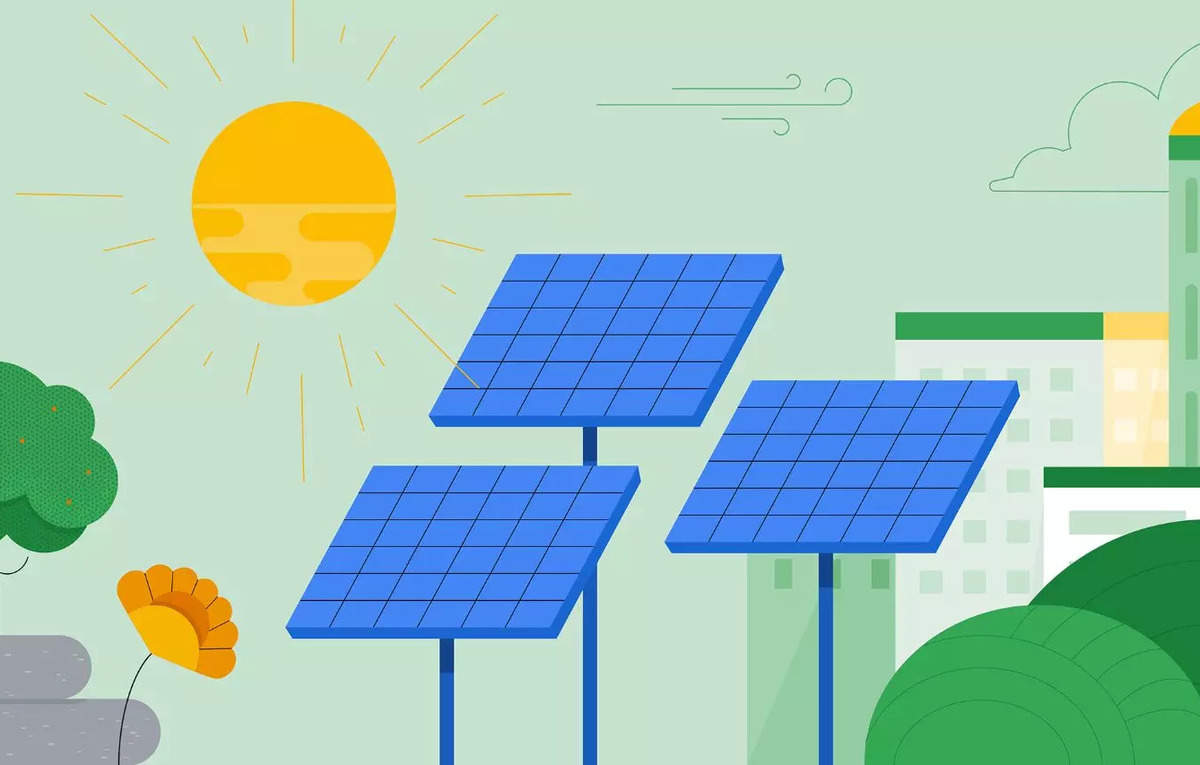Google has a bold goal to reach net-zero emissions across all its operations and value chain by 2030, supported by a goal to run on 24/7 carbon-free energy on every grid where it operates. The path to reach these goals is challenging, and requires both commercial efforts and broader energy systems change. This includes creating new clean energy opportunities in regions that are early in their decarbonisation journeys and have electricity grids that are undersupplied with carbon-free energy.
Today, Google is announcing a partnership with BlackRock’s Climate Infrastructure business that will help support the development of a 1 gigawatt (GW) pipeline of new solar capacity in Taiwan, advancing clean energy on the local electricity grid and 24/7 carbon-free goal. As part of the partnership, the companies are making a capital investment in New Green Power (NGP), a Taiwanese solar developer and BlackRock portfolio company, to facilitate the buildout of its large-scale solar pipeline.
Partnership with BlackRock’s Climate Infrastructure business to catalyse solar energy
Many countries in Asia Pacific face unique challenges with adding new carbon-free energy, including land constraints, low availability of commercially scalable wind and solar resources, and high construction costs. Therefore, fossil fuels, including imported coal and natural gas, generate nearly 85% of Taiwan’s electricity. To help overcome these obstacles, companies can play a pivotal role in finding new strategies to grow the supply of available renewable energy sources and promoting emerging technologies that enable the full decarbonisation of regional electricity systems.
Google’s investment in NGP, subject to regulatory approval, will serve as development capital toward its 1 GW pipeline of new solar projects, catalysing critical equity and debt financing for those projects. The tech giant expects to procure up to 300 MW of solar energy from this pipeline through power purchase agreements (PPAs) and the associated energy attribute certificates (Taiwan Renewable Energy Certificates or T-RECs) to help meet electricity demand from its data centre campus, cloud region and office operations in Taiwan.
Taking it a step further, Google may offer a portion of this clean energy capacity to its semiconductor suppliers and manufacturers in the region so they can advance their own sustainability goals while helping the company reduce its Scope 3 emissions (the indirect emissions from our value chain). A significant share of Google’s Scope 3 footprint can be traced back to the electricity grids that power its suppliers and users, which is why broad decarbonisation — and partnerships like this — continue to be core to the company’s net-zero goal.
BlackRock’s Global Head of Climate Infrastructure David Giordano commented, “As we witness growth in demand for digital services, powered by AI and data-centric technologies, it becomes imperative to invest in clean energy. The partnership is a testament to the shared commitment between Google and BlackRock to driving the transition to a low-carbon economy.”
How Google is unlocking decarbonisation opportunities across Asia Pacific
The partnership builds on more than five years of collaboration to accelerate the clean energy transition through market and policy development across Asia Pacific. The advocacy and engagement efforts were a key driver of the 2017 amendment of Taiwan’s Electricity Act, which opened up the market to allow non-utility companies to directly purchase renewable energy. This work led to Google becoming the first corporate buyer to sign a PPA in the market. Since then, Taiwan has achieved a significant cumulative contracted capacity through corporate PPAs, becoming one of the leading corporate PPA markets in the Asia-Pacific region.
Continued progress on the company’s carbon-free energy goal is happening across Asia Pacific with recent announcements in Australia and Japan. In parallel, Google is working with partners to support policies that accelerate the decarbonisation of electricity grids. The company is also a founding member of the Asia Clean Energy Coalition (ACEC), which brings together energy buyers, suppliers, and policymakers to help improve the policy and regulatory environment for corporate renewable electricity purchasing. Coalitions like ACEC are essential to drive the system-level transformation required for a carbon-free future in Asia Pacific.


